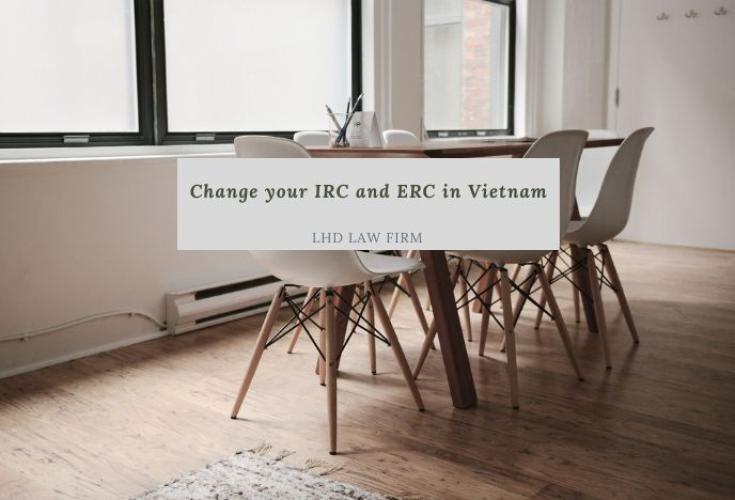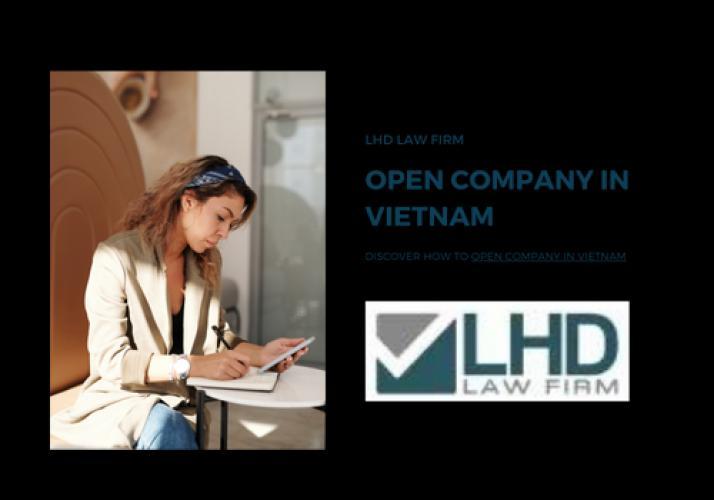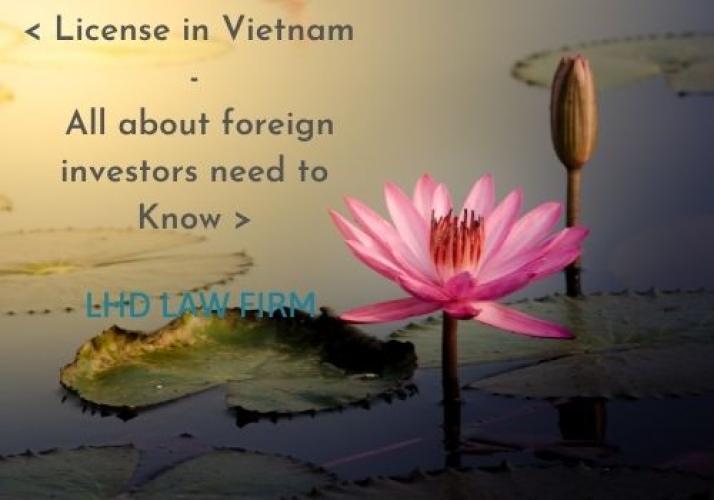Step By Step Guide To Start A Small Business In Vietnam
- 17/10/2022

 CONTENT
CONTENT
 CONTENT
CONTENT
Forms of Business A foreign entity may establish its presence in Vietnam as a limited-liability company with one or more members, a joint-stock company, a partnership, a branch, a business cooperation contract or a representative office. Foreign investors may also buy an interest in an existing domestic enterprise, subject in some cases to ownership limitations which vary depending on the relevant industry sector. The choice of investment vehicle will depend on factors such as the number of investors, industry, and size of the project and whether there is any intention to list the entity.

1. Limited-liability Company: A limited-liability company is a legal entity established by its members through capital contributions to the company. The capital contribution of each member is treated as equity (charter capital). The members of a limited-liability company are liable for the financial obligations of the limited-liability company to the extent of their capital contributions. The management structure of a limited liability company consists of the members’ council, the chairman of the members’ council, the general director and a controller (or board of supervisors where the limited-liability company has more than 10 members). A limited-liability company established by foreign investors may take the form of either:
• A 100% foreign-owned enterprise (where all members are foreign investors); or
• A foreign-invested joint-venture enterprise between foreign investors and at least one domestic investor. A limited-liability company may not issue securities to raise capital.
2. Joint-stock Company a joint-stock company: is a limited liability legal entity established by its founding shareholders based on their subscription for shares in the company. Under Vietnamese law, this is the only type of company that can issue shares. The charter capital of a joint-stock company is divided into shares and each founding shareholder holds a number of shares that corresponds to the amount of capital the shareholder has contributed to the company. A joint-stock company is required to have at least three shareholders. There is no limit on the maximum number of shareholders in such companies. The management of a joint-stock company comprises the general meeting of shareholders, the board of management, the chairman of the board of management, the general director and a board of supervisors (where the joint stock company has more than 10 individual shareholders, or if a corporate shareholder holds more than 50% of the shares of the joint-stock company). A joint-stock company may either be 100% foreign-owned or may take the form of a joint venture between both foreign and domestic investors.
3. Partnership: A partnership may be established between an individual or a legal entity and the general partner, who must be an individual. The general partner has unlimited liability for the operations of the partnership.
4. Branches: This is not a common form of foreign direct investment and is only permitted in a few sectors. Branches of foreign companies in Vietnam are different from representative offices in that a branch is permitted to conduct commercial activities in Vietnam.
5. Representative Offices Foreign companies: with business relations or investment projects in Vietnam may apply to open representative offices in Vietnam. A representative office is not an independent legal entity and may not conduct direct commercial or revenue generating activities (i.e., the execution of contracts, receipt of funds, sale or purchase of goods, or provision of services). However, a representative office is permitted to:
• Act as a liaison office to observe the business environment;
• Search for trade and/or investment opportunities and partners;
• Supervise and assist the implementation of contracts entered into by its head office with Vietnamese partners;
• Act on behalf of its head office to supervise and direct the implementation of projects in Vietnam. Thus representative offices can provide a wide range of ancillary support to their head offices overseas. This is a very common form of presence in Vietnam for foreign companies, particularly at the first initial stages.
6. Business Cooperation Contract (‘BCC’) A BCC is a cooperation agreement between foreign investors and at least one Vietnamese partner in order to carry out specific business activities. This form of investment does not constitute the creation of a new legal entity. The investors in a BCC generally share the revenues and/or products arising from a BCC and have unlimited liability for the debts of the BCC.

7. Build-Operate-Transfer (‘BOT’), Build-Transfer (‘BT’) and Build-Transfer-Operate (‘BTO’) Contracts Foreign investors may sign BOT, BT and BTO contracts with a State body to implement infrastructure construction projects in Vietnam. Typically, the contracts are for projects in the fields of transportation, electricity production, water supply, drainage and waste treatment. The rights and obligations of the foreign investor will be regulated by the signed BOT/ BT/BTO contract and the applicable regulations governing such contracts. Both public- and private-sector investors are encouraged to participate in BOT, BTO and BT in the following sectors:
(i) Construction, operation and management of brand-new infrastructure facilities; and
(ii) Renovation, expansion, modernization, operation and management of existing infrastructure facilities such as:
• Roads, bridges, tunnels, and ferry landings;
• Railway bridges and railway tunnels;
• Airports, seaports and river ports;
• Clean water supply systems; sewage systems;
• Wastewater, waste collection and handling systems;
• Power plants and power transmission lines;
• Infrastructure for health service, education, training, career training, culture, sport and offices of State agencies; and
• Other projects as may be determined by the Prime Minister.
Setting up a Business In order to set up a limited liability company, a joint stock company, a partnership or enter into a business cooperation contract with one or more Vietnamese partners, the foreign investors must obtain an investment certificate from the licensing authorities, which may be either (i) the provincial people’s committee (for projects located outside of industrial zones, export processing zones, high-tech zones and economic zones), or (ii) the provincial industrial zone management authority or economic zone management authority (for projects located in industrial zones, export processing zones, high-tech zones and economic zones). Under the regulations, the licensing process should take from 15 working days (for the investment certificate registration procedure) to 45 working days (for the investment certificate appraisal procedure). However in practice it usually takes longer. The procedures for obtaining a branch license depend on the scope of operations of the branch. Investment in “conditional” sector activities is subject to the more cumbersome appraisal (as opposed to registration) procedures. These require, inter alia, the license application to be reviewed also at central government ministry level in Hanoi. Approval for the establishment of a representative office of a foreign company is granted in the form of a license issued by the provincial people’s committee. Procedures for setting up a representative office are quite simple in comparison with those for a company and it normally takes 2 - 4 weeks to obtain a representative office license from the date of submission of a complete application dossier. For BOT/BTO/BT projects, foreign investors must sign BOT, BT and BTO contracts with an authorized State body, and then establish a project company in the form of a limited liability company or a joint stock company. Liquidation and Bankruptcy A company can only be liquidated if it is solvent and all creditors can be paid. The process generally takes 6 - 12 months and requires a final tax audit. For insolvent companies, a new Bankruptcy Law comes into effect 1 January 2015. The new law sets out, inter alia, which parties can instigate bankruptcy proceeding, appointment of a liquidator, organization of creditors meetings, and priority of payment of creditors.
![Setting Up Business In Vietnam [New 2024]](data/News/setup-business-in-viet-nam-5-step-guides_1703231174.jpeg)









1 comment
Max Chin
We like to setup a LLC company in Vietnam with 100% foreign ownership
Send comment